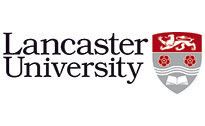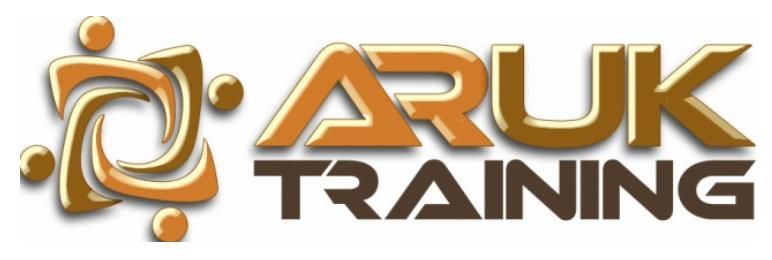
Executive Diploma in Digital Leadership and Innovation Outlines
Course ID: 2502100102479LUEMT
Course Dates : 10/02/25 Course Duration : 25 Studying Day/s Course Location: London, UK
Language: Bilingual
Course Category: Executive Diploma
Course Subcategories: Financial Strategy and Analysis
Course Information
Introduction
The Executive Diploma in Digital Leadership and Innovation is a comprehensive program designed to equip forward-thinking professionals with the knowledge, skills, and strategies necessary to thrive in an increasingly digitalized world. This course bridges the gap between traditional leadership paradigms and the demands of modern digital ecosystems, ensuring participants are prepared to lead transformational initiatives and foster innovation within their organizations. As technology continues to redefine industries, the ability to align digital strategies with organizational goals is paramount for achieving sustained success.
Digital innovation and leadership are no longer optional but are critical capabilities for organizations aiming to remain competitive in a volatile market. This program offers a unique blend of theoretical knowledge and practical applications to enable leaders to navigate the complexities of digital disruption, drive innovation, and implement agile methodologies. Through a multidisciplinary approach, participants will develop expertise in aligning IT strategies with business objectives, fostering a culture of innovation, and managing digital transformation projects with confidence.
The course emphasizes the strategic importance of digital leadership, highlighting the evolving role of leaders in leveraging technology to create value. Participants will delve into key topics such as digital transformation frameworks, disruptive technologies, agile project management methodologies, and the art of driving sustainable innovation. Case studies, interactive workshops, and real-world simulations will provide participants with a robust understanding of how to lead effectively in the digital age.
Over a span of 20 days, the curriculum is structured to offer an immersive experience, allowing participants to explore critical areas of digital leadership and innovation deeply. This is complemented by a 5-day period dedicated to preparing a final thesis, where participants will integrate their learning into a practical, research-driven project. The thesis, ranging from 4,500 to 5,000 words, will challenge participants to address real-world digital leadership and innovation issues, demonstrating their ability to apply course concepts to organizational challenges.
Course Structure
IT Strategy and Digital Leadership (5 Days)
Digital Innovation and Disruption (5 Days)
Agile and Scrum for Digital Projects (5 Days)
Introduction to Digital Transformation (5 Days)
Final Thesis Preparation (5 Days)
The thesis will serve as a capstone to the program, requiring participants to conduct in-depth research, analyze complex problems, and propose actionable solutions. This comprehensive project will test their ability to synthesize knowledge gained throughout the course and apply it to real-world scenarios.
By the end of this program, participants will emerge as adept digital leaders capable of steering their organizations toward sustainable innovation and growth in a rapidly evolving digital landscape.
Objectives
Objectives
To provide a solid foundation in digital leadership and its strategic role in organizational success.
To equip participants with tools and frameworks to drive innovation and navigate digital disruption effectively.
To introduce agile and Scrum methodologies as enablers of efficient digital project management.
To develop the ability to design and implement IT strategies that align with overarching business objectives.
To enhance participants' capabilities in leading digital transformation initiatives and fostering a culture of continuous innovation.
To culminate learning with a practical thesis, showcasing the application of digital leadership and innovation principles in a real-world context.
Who Should Attend?
This Executive Diploma is designed for professionals across industries who are tasked with leading or contributing to digital initiatives within their organizations. It is ideal for C-suite executives, department heads, IT professionals, project managers, innovation officers, and consultants seeking to advance their careers and drive impactful digital transformations. Additionally, entrepreneurs and business owners aiming to leverage digital strategies for growth and competitiveness will find immense value in this program.
Training Method
• Pre-assessment
• Live group instruction
• Use of real-world examples, case studies and exercises
• Interactive participation and discussion
• Power point presentation, LCD and flip chart
• Group activities and tests
• Each participant receives a 7” Tablet containing a copy of the presentation, slides and handouts
• Post-assessment
Program Support
This program is supported by:
* Interactive discussions
* Role-play
* Case studies and highlight the techniques available to the participants.
Daily Agenda
Daily Schedule (Monday to Friday)
- 09:00 AM – 10:30 AM Technical Session 1
- 10:30 AM – 12:00 PM Technical Session 2
- 12:00 PM – 01:00 PM Technical Session 3
- 01:00 PM – 02:00 PM Lunch Break (If Applicable)
- Participants are expected to engage in guided self-study, reading, or personal reflection on the day’s content. This contributes toward the CPD accreditation and deepens conceptual understanding.
- 02:00 PM – 04:00 PM Self-Study & Reflection
Please Note:
- All training sessions are conducted from Monday to Friday, following the standard working week observed in the United Kingdom and European Union. Saturday and Sunday are official weekends and are not counted as part of the course duration.
- Coffee and refreshments are available on a floating basis throughout the morning. Participants may help themselves at their convenience to ensure an uninterrupted learning experience Provided if applicable and subject to course delivery arrangements.
- Lunch Provided if applicable and subject to course delivery arrangements.
Course Outlines
Day 1: Introduction to IT Strategy and Digital Leadership
Overview of IT strategy and its role in modern business environments
The relationship between business strategy and IT strategy
Key principles of digital leadership
Identifying digital transformation challenges and opportunities
Day 2: Building an Effective IT Strategy
Aligning IT with organizational goals and objectives
Developing a strategic roadmap for IT investments
Best practices for IT governance and risk management
Case studies on successful IT strategies
Day 3: Leading Digital Transformation
The role of leadership in digital transformation
Change management in the digital age
Tools and frameworks for managing digital projects
Overcoming common barriers in digital transformation
Day 4: Emerging Technologies and Innovation
Introduction to emerging technologies: AI, blockchain, IoT
Leveraging technology for innovation and competitive advantage
Exploring the future of digital business models
Assessing the impact of new technologies on existing IT systems
Day 5: Developing Digital Leadership Skills and Conclusion
Building and managing high-performing digital teams
Decision-making in a data-driven environment
Leading with agility and innovation
Recap of key learning points and action plan for implementation
Part 2 / 5
Digital Innovation and Disruption
Day 1:
Foundations of Digital Innovation
Understanding digital disruption and its historical evolution.
Key drivers of digital transformation: Technology, consumer behavior, and market forces.
Overview of disruptive innovation theory and its implications for businesses.
Identifying barriers to digital adoption and strategies to overcome them.
Day 2:
Emerging Technologies and Their Applications
Introduction to artificial intelligence and machine learning in business contexts.
Exploring the role of blockchain in enhancing transparency and security.
Leveraging IoT for operational efficiency and smart product development.
Case study: How Amazon uses robotics and AI to revolutionize supply chain management.
Day 3:
Strategy Development and Execution
Aligning digital initiatives with organizational goals and KPIs.
Conducting a digital readiness assessment for your organization.
Designing a roadmap for phased implementation of digital projects.
Workshop: Developing a pitch for a digital innovation project.
Day 4:
Change Management and Organizational Culture
Building a culture of innovation: Leadership roles and responsibilities.
Techniques for overcoming resistance to change among stakeholders.
Measuring employee engagement during digital transitions.
Best practices for communicating vision and progress effectively.
Day 5:
Compliance, Risk, and Future Trends
Navigating legal and ethical considerations in digital innovation.
Mitigating cybersecurity risks in digitally transformed environments.
Predicting future trends: Quantum computing, augmented reality, and beyond.
Final group presentations and feedback session.
Part 3 / 5
Agile and Scrum for Digital Projects
Day 1:
Introduction to Agile and Scrum
Overview of Agile values and principles.
Understanding the Agile Manifesto and its application to digital projects.
Introduction to the Scrum framework: roles, events, and artifacts.
The importance of iterative and incremental development in digital projects.
Day 2:
Agile Planning and Product Backlogs
Creating and managing product backlogs: best practices.
Writing effective user stories and defining acceptance criteria.
Prioritization techniques for digital projects (MoSCoW, value mapping).
Estimation methods: story points, planning poker, and relative sizing.
Day 3:
Sprint Execution and Delivery
Conducting sprint planning and setting sprint goals.
Managing daily stand-ups: fostering team collaboration and transparency.
Sprint reviews and stakeholder engagement for continuous feedback.
Handling challenges during sprints: scope creep and technical debt.
Day 4:
Agile Metrics and Continuous Improvement
Monitoring progress with Agile metrics: velocity and burn-down charts.
Conducting sprint retrospectives to drive team improvement.
Continuous delivery and integration practices for digital projects.
Agile leadership and fostering a culture of innovation.
Day 5:
Practical Application and Case Studies
Real-world applications of Agile and Scrum in digital projects.
Solving complex project challenges through Agile practices.
Group exercises: creating sprint plans and managing product backlogs.
Course wrap-up: review, Q&A session, and final assessment.
Part 4 / 5
Introduction to Digital Transformation
Day 1:
Foundations of Digital Transformation
Understanding the concept and evolution of digital transformation.
Key frameworks: TAM, Diffusion of Innovations, and Lean Startup Methodology.
Identifying opportunities for digital innovation within your organization.
Case study analysis: Lessons from early adopters of digital strategies.
Day 2:
Emerging Technologies and Their Applications
Overview of AI, machine learning, and automation in business contexts.
Exploring IoT and its implications for operational efficiency.
Blockchain technology: Beyond cryptocurrencies.
Hands-on workshop: Mapping technology use cases to specific business challenges.
Day 3:
Strategy Development and Roadmapping
Aligning digital initiatives with organizational goals and KPIs.
Crafting a phased implementation plan using agile principles.
Engaging stakeholders and overcoming resistance to change.
Group activity: Drafting a preliminary digital transformation roadmap.
Day 4:
Execution and Change Management
Building cross-functional teams for digital projects.
Implementing agile sprints and iterative testing cycles.
Tools and techniques for monitoring progress and mitigating risks.
Panel discussion: Insights from industry leaders on managing large-scale transformations.
Day 5:
Measuring Success and Ethical Considerations
Defining success metrics for digital transformation initiatives.
Leveraging data analytics to track ROI and performance.
Addressing privacy, security, and ethical concerns in digital innovation.
Final project presentation: Participants showcase their transformation roadmaps.
Part 5 / 5 Executive Diploma Thesis
As part of this Programme, participants are required to complete and submit an Executive Diploma in Digital Leadership and Innovation Thesis as a critical component of their learning journey.
This thesis serves as a demonstration of the participant’s ability to apply theoretical knowledge to real-world challenges and propose innovative solutions.
To ensure depth and rigor in analysis, the thesis must now be between 6,000 and 7,000 Words (excluding references, appendices, and cover pages).
This updated word count reflects the program’s commitment to fostering comprehensive research and advanced problem-solving skills while remaining achievable within the allocated study time.
Submissions that fall outside this range will not be accepted.
The Executive Mini Masters program Thesis is a mandatory requirement for graduation, and without its successful submission and approval, participants will not be eligible to graduate from the program or receive their Executive Programme certificate .
Course Fees: £25,187.76
Vat Not Included in the price.
VAT may vary depending on the country where the course or workshop is held.
Click to pay
Date has passed please contact us Sales@e-s-hub.com



















































